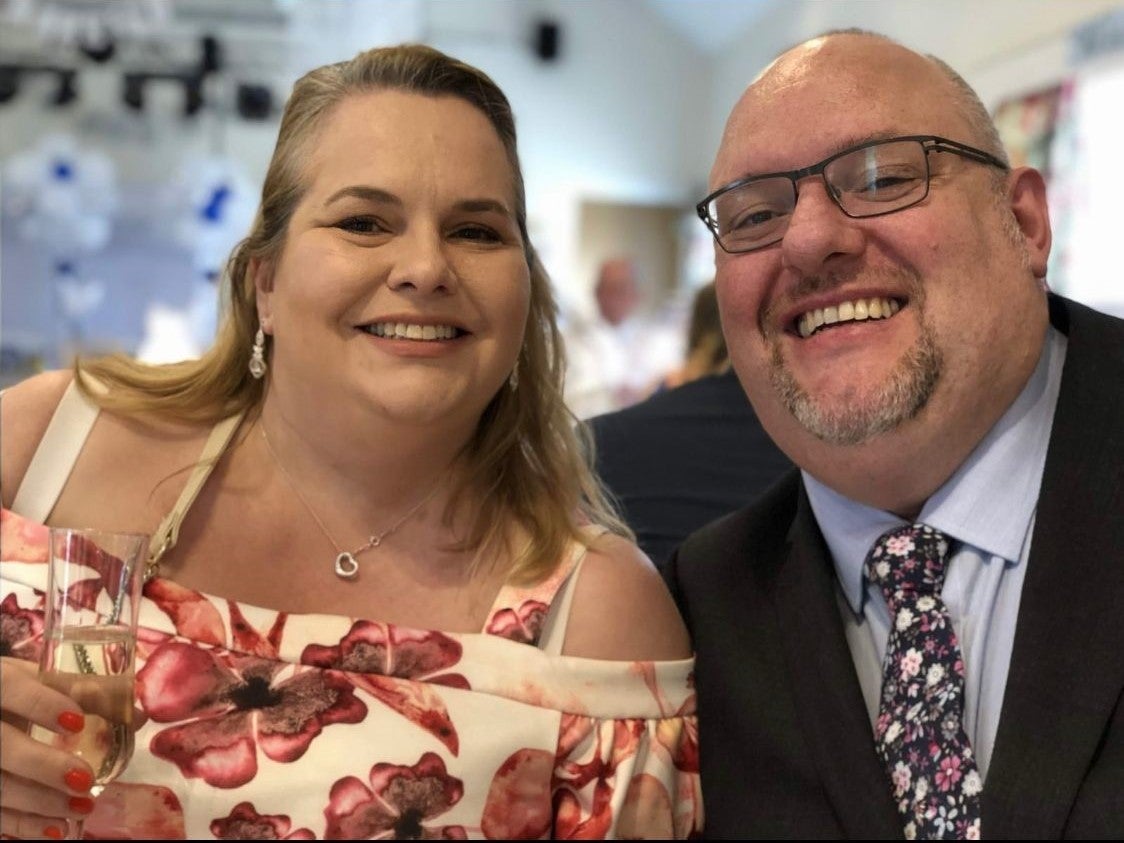‘No food and no money until Monday’: one family’s descent into poverty in cost crisis Britain
Gary and Natasha Waterhouse had a combined income of £48,000 five years ago. Today, they and their children have found themselves using food banks

Your support helps us to tell the story
From reproductive rights to climate change to Big Tech, The Independent is on the ground when the story is developing. Whether it's investigating the financials of Elon Musk's pro-Trump PAC or producing our latest documentary, 'The A Word', which shines a light on the American women fighting for reproductive rights, we know how important it is to parse out the facts from the messaging.
At such a critical moment in US history, we need reporters on the ground. Your donation allows us to keep sending journalists to speak to both sides of the story.
The Independent is trusted by Americans across the entire political spectrum. And unlike many other quality news outlets, we choose not to lock Americans out of our reporting and analysis with paywalls. We believe quality journalism should be available to everyone, paid for by those who can afford it.
Your support makes all the difference.Five years ago, Gary and Natasha Waterhouse had a combined income of £48,000 and, along with their three children, were living a comfortable life in the Lincolnshire village of Morton.
This week, the couple were so short of money, they had to ask their 18-year-old son to use his wages from a part-time job to top up the family’s electricity meter. “Heart-wrenching,” says Gary today. “I should be providing for him; not the other way round.”
Their descent into poverty is partly down to circumstances unique to them: a devastating illness resulting in both parents having to give up work.
But their situation is now being exacerbated by a cost-of-living crisis which many analysts say this week’s spring statement did little to alleviate.
Rising food prices, fuel costs and energy bills will see some 1.3 million people fall below the poverty line within 12 months, according to the Resolution Foundation. Across the board, the country is set to experience the biggest fall in living standards since records began in 1956. “Household budgets simply cannot stretch anymore,” said Michael Clarke, at the Turn2us poverty charity, in one especially brutal analysis. Millions, he added, were facing “catastrophe”.
Indeed, it is families like the Waterhouse’s that will feel the brunt most sharply.
“We’ve got no food in the house and no money to buy any more until Monday,” says Gary, 50. “What will we do? Go to the food bank and hope we can scrape by over the weekend.”

The family’s world came “crumbling down” in 2017 when Natasha – also 50 – was diagnosed with a spinal cord tumour.
After four months in hospital, she came out in a wheelchair. Although she briefly returned to her old job in customer services, the pain made it increasingly impossible. By 2018, she had left – and was in such torment she needed a full-time carer.
Gary – a one-time civil servant turned taxi driver – quit cabbing to look after her. “What else could I do?” he asks. “She’s in constant agony. I didn’t want to leave that to a stranger coming in and out of the house.”
Since then the couple have tried to manage on the combined income of universal credit, carer’s allowance and child benefits (their two youngest are 17 and 18) – which brings in roughly £2,200 a month.
But as costs have crept up over the last two years, they have found themselves going increasingly short each week. “By the time you take out rent, bills, bus fares for college and a food shop, there’s literally nothing left anymore,” says Gary. “I’ve been slowly eating into my overdraft to get by but I’m now at the limit of that too.”
In a bid to survive, they have taken to doing less washing to save on electricity and buying out-of-date food as standard. A trip to the food bank has become a weekly thing, while their eldest son – who has temporarily moved back home after university – is helping with rent. “It’s hand to mouth,” says Natasha. “Just trying to stay buoyant – it feels like the whole system is against you.”
How could chancellor Rishi Sunak have helped on Wednesday? By doing something similar to what has been done in France, the couple say: forcing the big six energy firms – which made more than a £1bn last year – to take a hit on rising prices instead of passing it onto struggling families. “How is it right that they are making that kind of money while the rest of us can’t afford to live?” asks Gary.
He has just taken out a loan to pay for a new cabbie licence, although, having done the maths, he reckons that once his benefits are reduced to account for his pay, it will hardly generate any extra income.
In any case, for now, he and Natasha are holding one hope as they continue to struggle.
“One of the worst things has been realising we won’t have anything to leave the kids,” says Gary. “That’s very hard to get your head round. But I look at them and I’m so proud. They all work hard and they’re doing well in education – I’m certain they’ll all make successes of themselves.”
Join our commenting forum
Join thought-provoking conversations, follow other Independent readers and see their replies
Comments